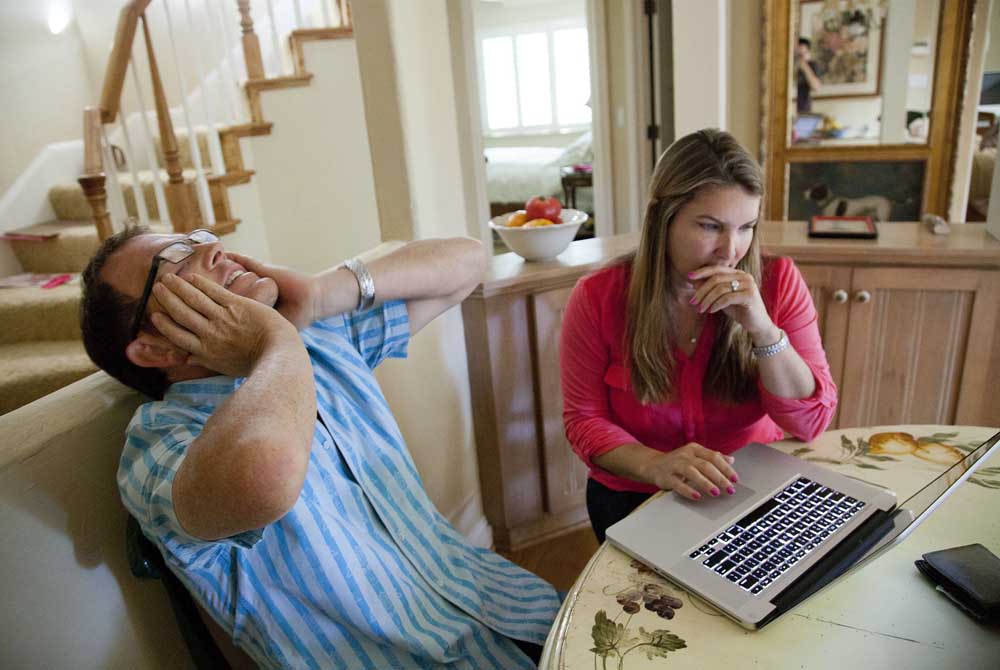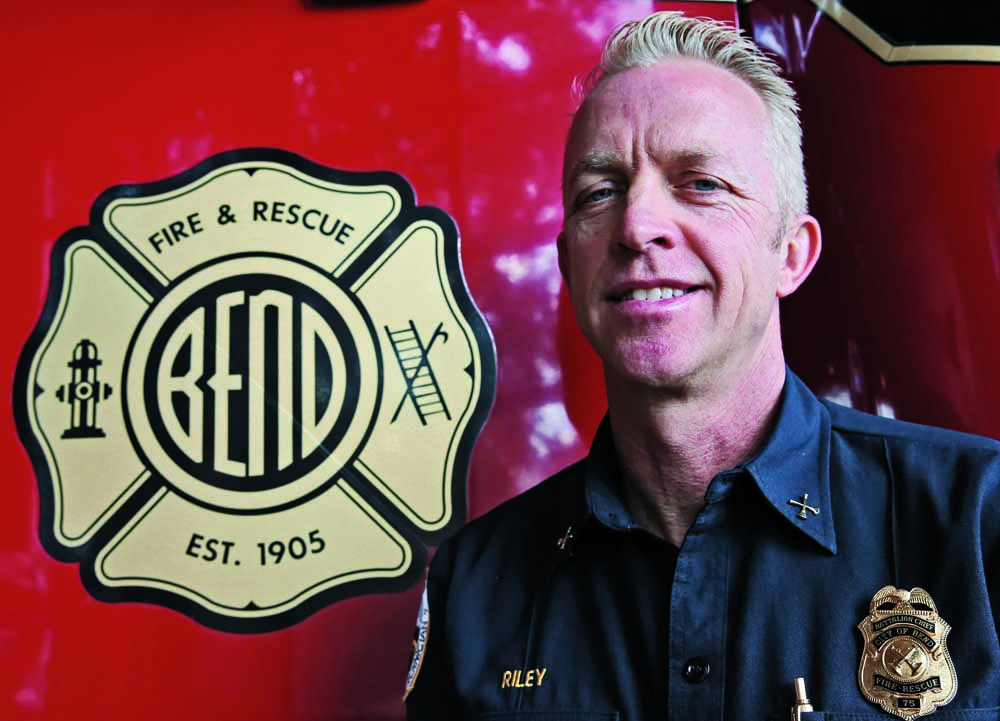Technology and relationships
Published 12:00 am Friday, November 29, 2013

- LiPo Ching / Bay Area News GroupAt their home in Los Gatos, Calif., Will, left, and Lia MacDonald search for the revealing Facebook messages that Will received from someone claiming to be Lia’s friend Jenna. Modern-day interaction is very much shaped by modern-day technology.
Lia MacDonald sat down at her laptop and clicked on Facebook. There he was, her old flame, asking for her. It had been years since their last encounter, long before she met her husband, started a family and moved across the globe. She answered back.
“I remember the good times, too,” she tapped on her keyboard.
Her husband Will, a Cambridge-educated Silicon Valley entrepreneur, had been neglecting her lately. What could be wrong with a virtual trip down memory lane?
Since Lia and Will MacDonald became one of Match.com’s first success stories when they met online in 1996 — so long ago that Lia had to mail in a snapshot of herself and Will didn’t even have a home computer — they have become a Silicon Valley social experiment for our times.
Like anthropologists studying the cultures of rare civilizations, so, too, did journalists chronicle the trendsetting digital lifestyle of the MacDonalds. PBS Newshour called them “pioneers in online dating.” Kendall, their firstborn child, was dubbed the “Internet baby,” and Lia, a former schoolteacher, an “abundantly connected” mother who was one of the first with a computer on her kitchen counter for storing recipes and setting up play dates.
Perhaps no family, including teenagers, grandparents and friends abroad, better personifies the power of technology to redefine our relationships.
The story of the MacDonalds, in all its cultural touchstones and modern mayhem, reads like “The Truman Show” meets “Real Housewives” meets “Dr. Leakey and the Dawn of Man.”
But 14 years after their match, the technology that brought the MacDonalds together was threatening to tear them apart.
Could this marriage made in Internet heaven be saved?
Like the MacDonalds, nearly a quarter of online daters met a spouse or long-term partner through a dating website, according to a study this year by Pew Internet and American Life Project. Another study finds couples who meet online are twice as likely to get married than couples who met offline. More than ever, people are connecting with partners across the globe, giving new meaning to long-distance relationships and creating bonds that never existed in a predigital world.
And it’s not just about love. People are counting among their friends those who may share a passion for pinot noir or the Pittsburgh Steelers, even though they’ve never actually met; a 2011 Pew Research Center study found that 7 percent of the average Facebook user’s friends are strangers.
Like so many of us, though, the MacDonalds discovered that all this connectivity can come with a cost. Since it’s so easy to reach across the globe to make our next best friend — or rediscover an old one — we’re stumbling at staying focused on the people who are physically closest to us, in the same house, at the same dinner table, in the same bed.







